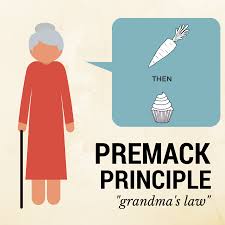
Words
Words can be powerful and words can have an impact.
Do you cringe in the park when you hear someone describe their dog’s behaviour as ‘she is just showing them who the boss is’ or similarly ‘he thinks he is the alpha male’?
Do you look to the heavens at the notion of a ‘pack’ that runs beyond the scope of the collective noun?
Perhaps those that work in the professional field learn to override the emotional arousal at words and terms like ‘leadership’, ‘dominant’ or ‘nothing in life is free’ and accept that this is just part of dog park parlance and taking exception to this sort of language, while frustrating, is a waste of time.

However, dog professionals should know better and especially those that work within the realms of what has become known as ‘positive reinforcement’. Some might even say, if you know better, then you should do better.
Most trainers these days, when referring to a protocol of ‘nothing in life is free’ (NILF) do not intend to actually implement a boot camp style aversive training programme. Rather they probably intend to train a dog into the habit of taking direction from the guardian along the lines of the ‘Premack Principle’.

If this is the case, then why not use the term ‘Premack Principle’ instead of using words that may imply or suggest something punitive and competitive or some sort of adversarial relationship based on winners and losers?
For many dog trainers there exists an endless cycle of myth busting by continuously bringing forth the facts and evidence against a tsunami of old wives tales. Therefore, the job in hand is made more difficult when professionals (dog walkers, trainers, vets or behaviourists…) continue to use these toxic terms.
I am sure that many use these words simply out of habit but when you know a word is ambiguous of meaning, sits in a grey area or is controversial why not just stop using those words?
Words can have very strong associations and be extremely subjective and some words are so contaminated by inappropriate meaning that they can conjure up completely the wrong impression.

If, in our training of dogs, we are to take the ethical and moral high ground of the ‘Least Intrusive & Minimally Aversive’ then we should apply the same criteria to our language.
Making better choices with the words we use and therefore the consequences they have will create a better and kinder future for all dogs and for the people you influence.

